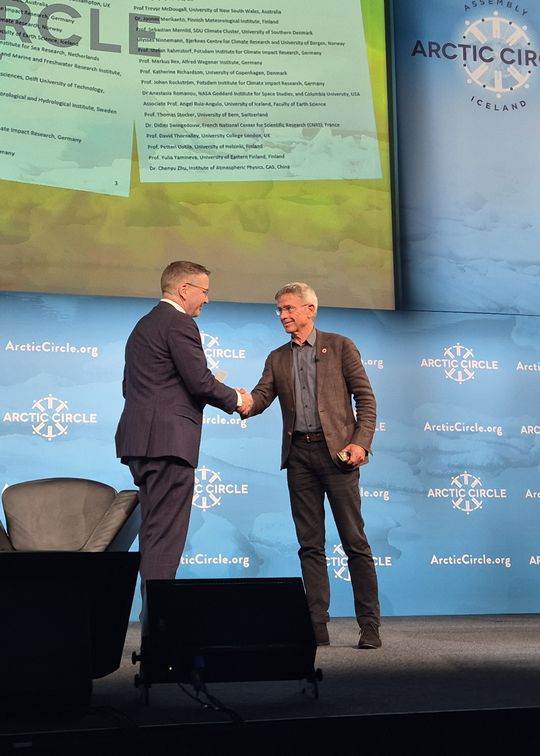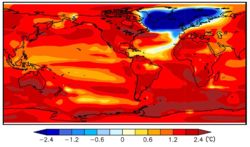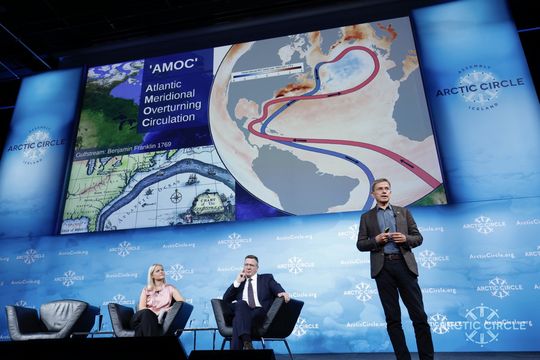Continued greenhouse gas emissions could trigger a regional cooling around the North Atlantic
In an open letter released today at the Arctic Circle conference in Reykjavík, Iceland, 44 leading experts on ocean circulation and tipping points from 15 countries appeal to the Nordic Council of Ministers to take this risk seriously
Continued greenhouse gas emissions increase global warming, but could trigger a regional cooling around the North Atlantic.
Satellite data and oceanographic measurements already show a long-term cooling trend in the subpolar Atlantic. This phenomenon has long been predicted by climate models and results from a weakening of the Atlantic Meridional Overturning Circulation (AMOC), which transports huge amounts of heat into the North Atlantic Region and thus determines life conditions for all people in Europe, the Arctic region and beyond.
A string
of scientific climate studies in the past few years suggests that the risk of
passing the tipping point for a major ocean circulation change in the Atlantic has
so far been underestimated.
Dr. Stefan Rahmstorf, an AMOC expert from the
Potsdam Institute in Germany, speaks about tipping points at the Arctic Circle conference today. On stage with him are Guðlaugur Þór Þórðarsson, Minister for the Environment, Energy and Climate in Iceland, and Hildigunnur H.H. Thorsteinsson, the director general of the Icelandic Met Office, who moderated the session. (Photo: Arctic Circle)
Scientist call for a greater urgency and priority in the global effort to reduce emissions
In an open letter released today at the Arctic Circle conference in Reykjavík,
Iceland, 44 leading experts on ocean circulation and tipping points from 15
countries appeal to the Nordic Council of Ministers to take this risk
seriously, initiate a risk assessment and take steps to minimize this risk as
much as possible.
The only way to limit the risk of passing those tipping points, is through greater urgency and priority in the global effort to reduce emissions. In the letter, the scientists call for an urgent and increased effort to limit global warming and reduce emissions as quickly as possible in order to stay close to the 1.5°C target set by the Paris Agreement.

Prof.
Stefan Rahmstorf handed a copy of the letter to the Icelandic environment minister Guðlaugur Þór Þórðarsson, on behalf of the scientists.





